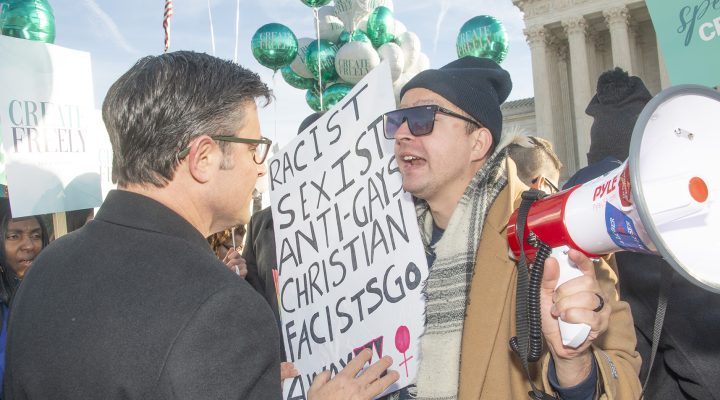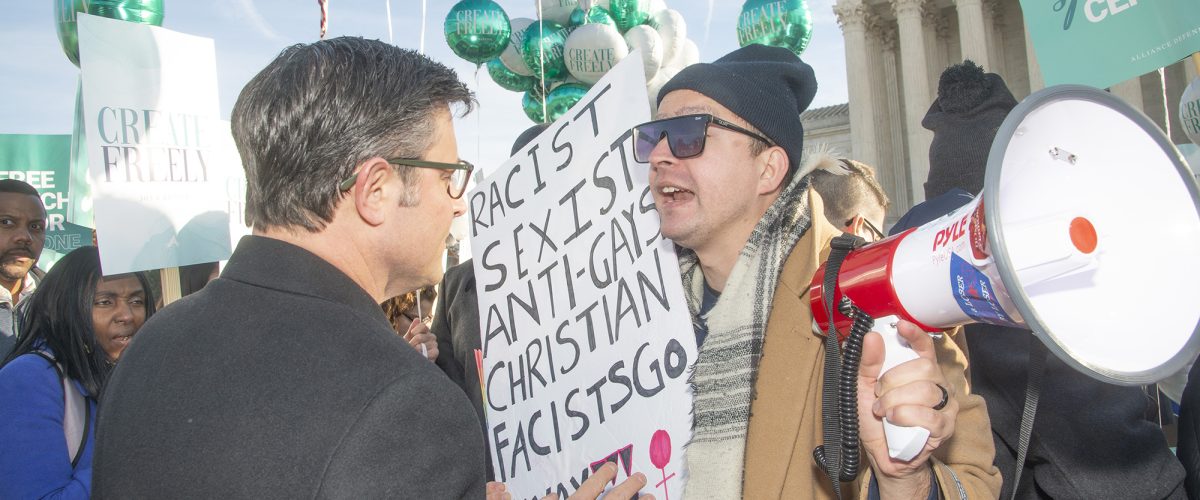Evangelical Christians remain the lone outliers among Americans opposing both homosexual practice and same-sex marriage, according to social scientist Ryan Burge.
In a Dec. 16 post on his “Graphs About Religion” Substack, Burge explores the question of whether there are some people who support the right to same-sex marriage while also believing same-sex relations are sinful. The short answer to that question is no, although Burge writes in more detail on the data in his post.
What he documents through this research, however — revealed with a series of graphs — is what other researchers have noted for the past decade: The remarkable turnaround Americans have had on accepting homosexuality and believing adults ought to be able to unite in same-sex marriages just as in opposite-sex marriages.
Even though opposition to homosexuality remains a frequent talking point of evangelical preachers and nonprofits — including Focus on the Family and the Southern Baptist Convention — it is not a view widely promoted among successful conservative politicians on a national scale.
For his analysis, Burge relies on data from the General Social Survey, one of the largest databases of American opinion with longitudinal comparisons.
“The trend is exceedingly clear,” he writes. “In 1973, about three-quarters of those surveyed thought that homosexuality was always wrong, compared to only 11% who said it was not wrong at all. But, beginning around 1990, those lines began moving toward each other. By 2012, they crossed at right around 45%, and they’ve continued moving in opposite directions since. In 2022, 63% of Americans thought same-sex relations were not wrong at all — up 52 points in 49 years. Meanwhile, the share who thought it was always wrong dropped to 29%, a decline of 45 points. Today, about 70% of Americans are generally fine with homosexual behavior, compared to less than 20% in 1973.”
“Only one group in the U.S. remains clearly opposed to homosexuality: evangelicals.
American attitudes on same-sex marriage have shifted dramatically in the past 16 years, he adds, also illustrating with graphs.
“In 2006, only 15% strongly agreed that same-sex couples should have the right to marry, while 35% strongly disagreed. In total, about 35% were in favor and 50% opposed in 2006, with the remainder taking a neutral position.”
However, by 2022, “45% strongly agreed with same-sex marriage, and another 20% agreed. In total, about two-thirds of Americans now favor same-sex marriage. In contrast, the strongly disagree share dropped to just 12%, and the disagree share fell to 8%. The neutral share is now about 15%.”
Back to his original question about how many Americans hold conflicting views by opposing homosexuality yet supporting same-sex marriage. Not many.
And not even evangelicals. Their opposition appears to be a package deal, he indicates.
“Only one group in the U.S. remains clearly opposed to homosexuality: evangelicals. In data from 2021 and 2022, 55% opposed same-sex marriage and believed homosexual behavior was wrong. Black Protestants were next closest at 27%, followed by Mainline Protestants at 20%, Catholics and other faith groups at 15%.
“In contrast, large majorities in many groups supported same-sex marriage and saw nothing wrong with homosexual behavior: 91% of the nonreligious, 76% of those from other faith groups, 75% of Catholics, and 73% of Mainline Protestants. A slim majority of Black Protestants (56%) were also in this category, but only 29% of evangelicals were.”
To see the complete set of graphs and analysis, visit the “Graphs About Religion” Substack where Burge is offering a discounted subscription through Dec. 25.
Related articles:
Divorce, double standards and debates on same-sex marriage | Opinion by Ryan Self
After decades of advances, support for LGBTQ rights slipping slightly
Weekly churchgoers are now the primary holdouts against same-sex marriage



